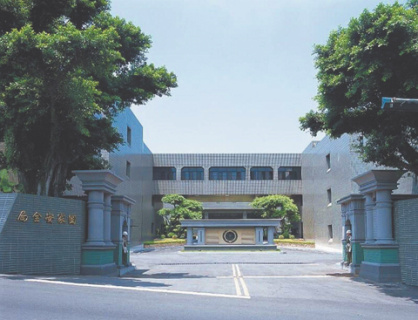
A former assistant to the head of the security service has been arrested in Taiwan. Ho Tseng-che held this post for six years. His boss was first the Minister of Foreign Affairs, and now heads the department for combating foreign intelligence. That is, with Chinese intelligence, because for almost 70 years the island has resembled a fortress besieged by China. But the fortress doesn’t look very strong. In February, three more officials were imprisoned under a similar article. Ho’s arrest led the Kuomintang, the main opposition party, to accuse the government of failing to protect Taiwan from the Communists. These internal strife is compounded by the ambiguity of the position of the island’s main defender, the United States, which has not yet said whether it intends to enter into a battle with China over Taiwan.
To an outside observer, strange as it may seem, the situation on the island of 23 million people is somewhat reminiscent of what happened in the Soviet Union in the 1930s. As soon as the authorities reported on the suspected treason, he was immediately expelled from the Democratic Progressive Party (DPP), which is in power. However, the analogy ends there. The Prosecutor General of the USSR, Andrei Vyshinsky, according to people who lived in that era, called recognition the queen of evidence. The prisoner was expected to receive appropriate treatment during the investigation.
In Taiwan, where there is a parliament, other democratic institutions, and independent courts, the problem is different. The destinies of Taiwanese and Chinese citizens are closely intertwined. And although the DPP claims that Taiwanese are not Chinese, but citizens of another state called the Republic of China, in fact they speak the same language (the difference in dialects will not prevent mainland and island Chinese from understanding each other). Hieroglyphs are used on both sides of the Taiwan Strait in writing.
According to various estimates, tens of thousands of Taiwanese live on the mainland. Most of them are engaged in business. When communication between people is so widespread, the security services must inevitably take advantage of it. In the issue dated 13.10.20, NG told about how Beijing staged a TV show exposing a Taiwanese spy. He sponsored performances in Hong Kong in favor of the declaration of independence, and also secretly filmed a film about the armed police of the PRC. The arrested man confessed and asked for forgiveness for the harm done to his homeland. But Taipei said it was a provocation. The Chinese intelligence service lured an innocent man into a trap and used him for propaganda purposes.
In August last year, the Chinese media, citing security agencies, reported the discovery of more than 1,000 cases when Taiwanese agents tried to steal classified documents in China. At the same time, the underground networks of the enemy were eliminated.
In China, the press writes what it is supposed to write. And in Taiwan, the Tribune and other newspapers began to talk about the political consequences for the government and personally for President William Lai of revealing a spy who worked for mainland China. According to these reports, opposition parties are demanding that prosecutors disclose the names of those DPP members who colluded with the Chinese Communist Party. William Lai and his colleagues found themselves in an awkward position. They had previously publicly accused the Kuomintang and another opposition group, the People’s Party, of pandering to the Communists and harming preparations to repel the invasion of the PRC troops on the island. And then it turns out that the members of the ruling party are sinners.
Eric Chu, the leader of the Kuomintang, demanded that the DPP purge its ranks and establish who in this party is supported by the Chinese Communist Party. And the People’s Party published a post on the Internet saying that the DPP has turned into a “national team of Chinese spies.” They have infiltrated the highest echelons of power, including the presidential administration, the security service, and foreign relations agencies. In fact, the post says, the DPP wants to turn Taiwan into a one-party state, the same as the PRC.
But what fate awaits Chinese agent Ho in Taiwan? Russian sinologist Alexander Isaev gave the following assessment in an interview with NG: “The special services always deny that their agent was caught. It’s just a rule. I also believe that Americans use Taiwanese as native speakers of Chinese to work with Chinese sources. The language barrier prevents Americans from working directly. The special relationship between the United States and Taiwan makes this barrier easy to overcome.”
As for the role of the Taiwanese in the economic life of the PRC, they had previously moved part of their high-tech industries to mainland China. They actively invested there. The Taiwanese helped the mainland Chinese establish the production of semiconductors and microchips necessary for the development of information and communication technologies. “But now, due to the aggravation of relations between the United States and China, the Taiwanese authorities are obstructing those of their businessmen who would like to set up businesses on the continent. Taipei’s motives are easy to understand. It is impossible to act contrary to America, which supplies the island with weapons and keeps military advisers there,” the expert believes.
It’s worth thinking about: if China takes military action against Taiwan, which it considers its breakaway province, will the United States stand up for its ward or not? Former US President Joseph Biden ambiguously answered this question. Sometimes he said he would defend the island, sometimes he took it back. According to The New York Times, the current owner of the White House has not yet determined his position either.
